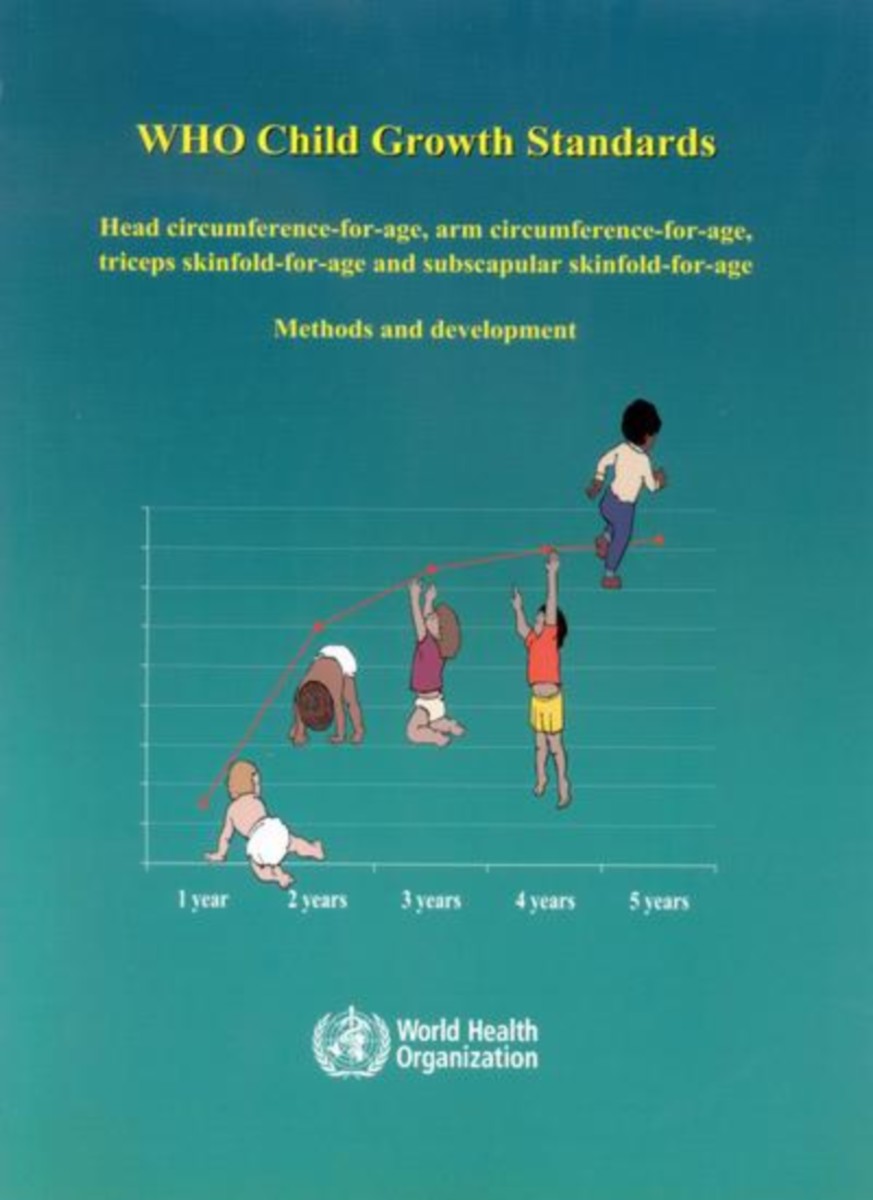WHO Child Growth Standards
Head Circumference-for-age, Arm Circumference-for-age, Triceps Skinfold-for-age and Subscapular Skinfold-for-age
Methods and Development- Publisher
World Health Organization - Published
8th October 2007 - ISBN 9789241547185
- Language English
- Pages 234 pp.
- Size 8" x 10"
A comprehensive review of the uses and interpretation of anthropometric references undertaken by WHO in the early 1990s concluded that new growth curves were needed to replace the existing international reference.
To develop new standards, a multi-country study was carried out to collect primary growth data and related information from 8440 healthy breastfed infants and young children from diverse ethnic backgrounds and cultural settings (Brazil, Ghana, India, Norway, Oman, and the USA).
The first set of growth standards (length/height-for-age, weight-for-age, weight-for-length, weight-for-height and body mass index-for-age) was published in April 2006.
This report presents the second set of growth standards (head circumference-for-age, arm circumference-for-age, triceps skinfold-for-age, and subscapular skinfold-for-age). The standards depict normal early childhood growth under optimal environmental conditions and can be used to assess children everywhere, regardless of ethnicity socioeconomic status and type of feeding.
This report will be useful to pediatricians and other healthcare providers, nutritionists, policy makers, researchers, national institutes of health, schools of medicine, and professional associations.
Companion volume:
WHO Child Growth Standards: Length/Height-for-age Weight-for-age Weight-for-length Weight-for-height and Body Mass Index-for age. Methods and Development
World Health Organization
World Health Organization is a Specialized Agency of the United Nations, charged to act as the world's directing and coordinating authority on questions of human health. It is responsible for providing leadership on global health matters, shaping the health research agenda, setting norms and standards, articulating evidence-based policy options, providing technical support to countries, and monitoring and assessing health trends.


